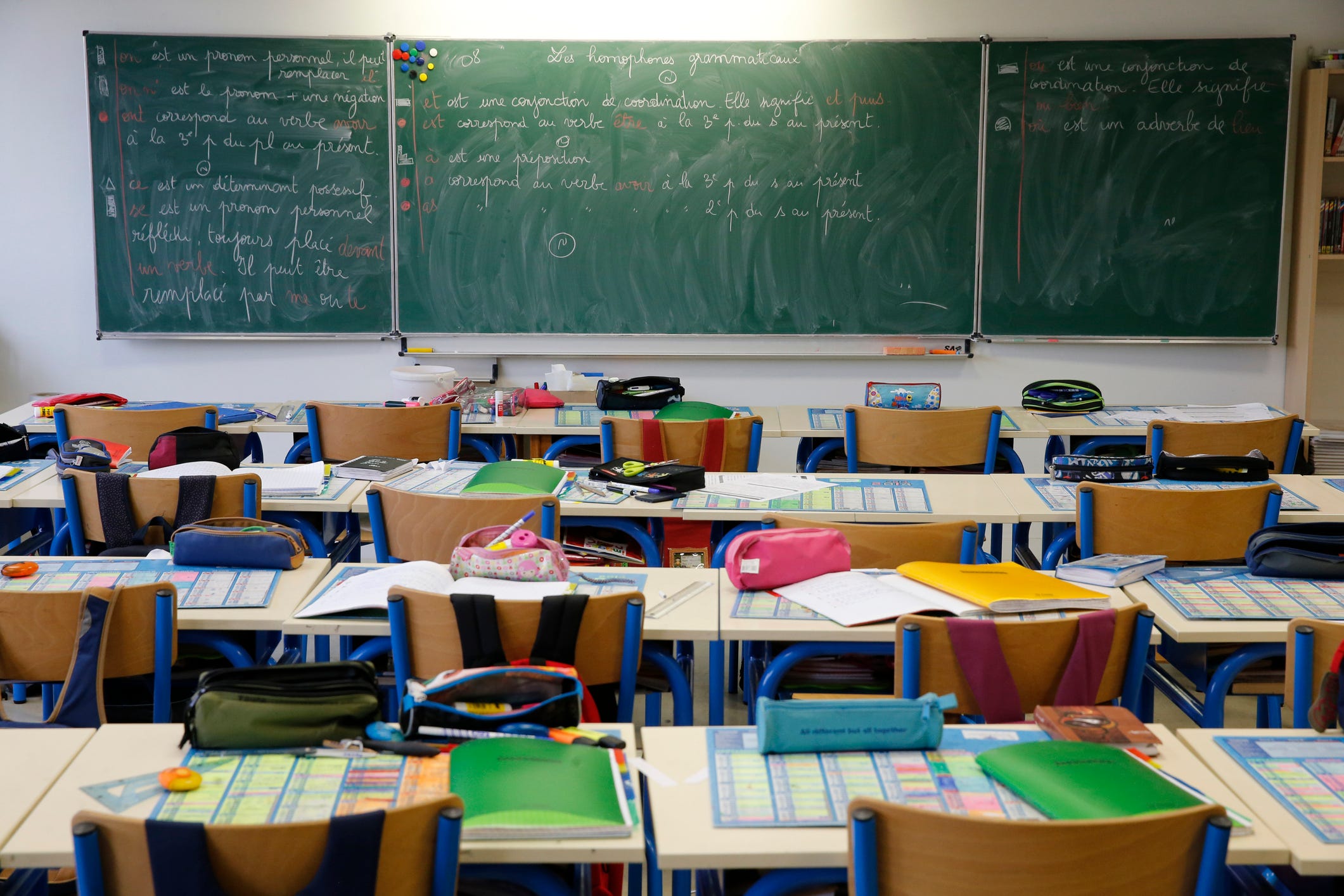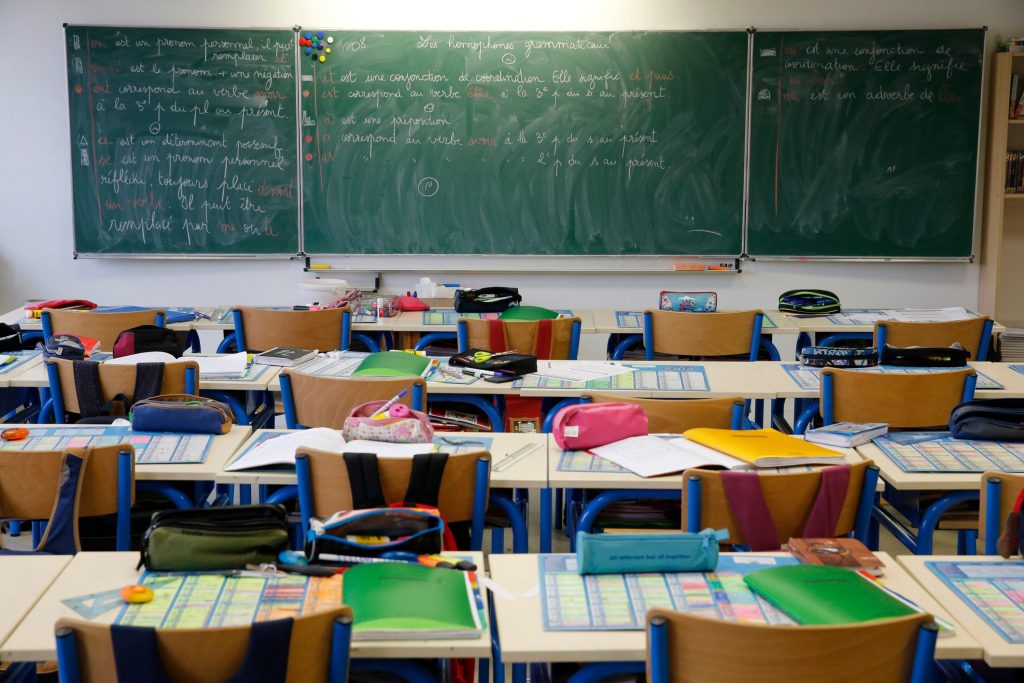
- Insider recently spoke with a New York City charter elementary teacher. They've been teaching for five years.
- But like many of their colleagues, they're planning to quit. The strain of the pandemic is one reason.
- "I think we're going to lose so many good teachers because it's been so draining," they said.
This as-told-to essay is based on a conversation with a New York City-based charter elementary school teacher. They asked to remain anonymous to protect their career, but their identity and employment has been verified by Insider. The conversation has been edited for length and clarity.
I've been a teacher for five years, and I currently work as an elementary school teacher at a charter school in New York City. I recently had COVID-19 and was back at school four days after my positive test due to the pressures of working at an understaffed school.
We technically have unlimited sick days, but there's pressure to return
I wasn't terribly ill, which is great. But the system of going through HR and school leadership to ask off of work took way longer than it should have for illness, because both of those bodies were so inundated and overwhelmed. I didn't even get an email response from HR until I was already back at work.
A lot fell on me while I was sick — including my assumptions about my own health and knowing the protocols — so I returned as soon as I was testing negative again on day four. I didn't wait the full five days because I felt a ton of pressure to support a very understaffed team, and nobody was telling me otherwise.
It's not anyone's job to tell me, "No, you should stay home," I understand that. But I also think it speaks to the situation, which is that we really do need all hands on deck.
Right now, there are a lot of teachers who have to cover other classrooms
Classrooms have been combined, and there are a lot of teachers who are teaching alone when they would normally have a co-teacher. You feel a sense of pressure to return because your absence is causing so much distress.
There's also a lack of empathy that we receive from our leadership, at least at my school. The verbiage when someone goes out because they have COVID-19 is: "We're sorry you have COVID-19. Your return date is this date." It's a policy to test every three days. If you receive a negative test after three days, you should return, and if you continue to test positive after day five, you should still return.
I know many teachers, including myself, who returned while testing negative but are still experiencing symptoms — having a persistent cough, fatigue, shortness of breath, or secondary sinus infections. We know those symptoms stick with people who have had COVID-19, yet it doesn't seem like that's really been accounted for in giving people the time off they need to rest.
We recently started getting tests provided to us every Wednesday. The testing was advertised to us that we would be tested once a week with a 24-hour turnaround test, but it sometimes takes four days to get back to us. I think this is city-wide; outside of the school, the labs are so at capacity that even if you are positive, you're not going to know for days and days. At that point, your five-day quarantine is almost up, so it kind of feels a little silly.
If you're not feeling well but don't have test results back yet, taking sick time doesn't feel like an option. I've seen the scenario play out many, many times, and every time, the teacher comes to school. I haven't been in the conversations they have with leadership; however, I know what the outcome has been.
These policies, in addition to the other pressures brought on by the pandemic, have led to a lot of teachers quitting
In my years of teaching, I've never seen turnover like we have this year. That's another part of the problem in terms of staffing. We were already understaffed before the Omicron surge, and I think there are a few reasons.
Because the majority of last school year was remote, people re-prioritized their lives and found new work-life balances and found new priorities outside of classroom teaching. There's also the fear of getting sick. There are teachers with immunocompromised people at home, or they're immunocompromised themselves, and it's become too risky for them to feel comfortable coming into work.
Then, there are also those who are just completely burned out from having to constantly cover classes that are not their own, having to constantly manage COVID-19 and a classroom, and dealing with a lot of unkindness. I consider myself in this bucket.
We feel like we're constantly in a losing battle where we're never going to make someone happy
Teachers are often the frontline of COVID-19-related conversations, and with teaching becoming increasingly political, we're talked to horribly. It's exhausting.
I don't see myself returning next year, and I'm hearing a lot of other people plan to leave teaching too. It makes me really sad, because I think there are so many talented educators where I work who are incredibly passionate. They're magic in the classroom, and I think we're going to lose so many good teachers because it's been so physically and emotionally draining.
There's also been a lot of talk around teachers wanting to go remote because we're not up to the task or lazy. That is so far from my experience and what I know of myself and my colleagues. We're trying everything we can possibly try to keep kids in school, but to also keep them there safely.
To do that, we need policies that keep everyone safe. Right now, we don't have them.
